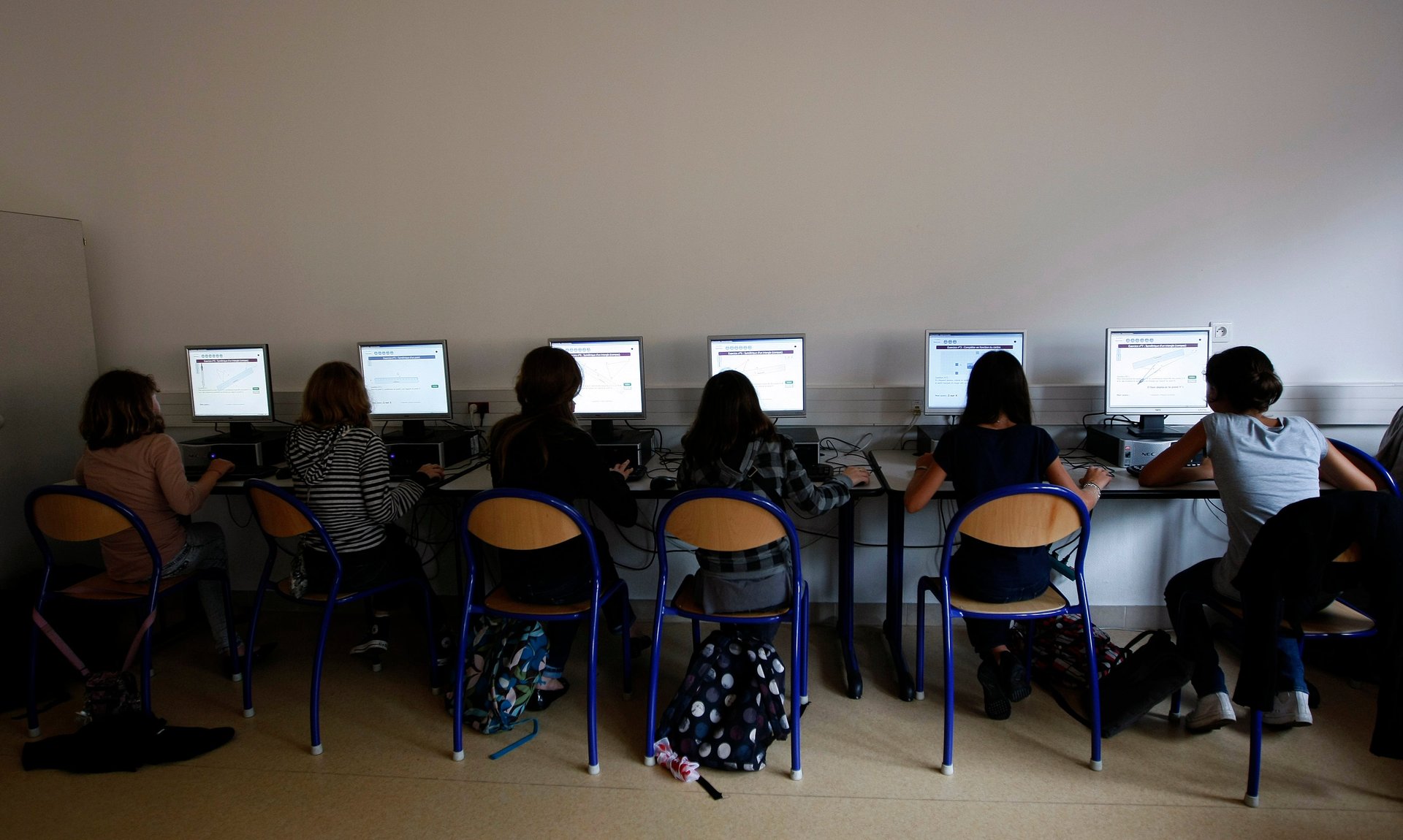In China, quarantined students can pay $1.40 to cheat an online class
Online courses are becoming an increasingly common mode of teaching worldwide, as education institutions ranging from primary schools to prestigious universities scramble to shut in response to the spread of the coronavirus.


Online courses are becoming an increasingly common mode of teaching worldwide, as education institutions ranging from primary schools to prestigious universities scramble to shut in response to the spread of the coronavirus.
That’s prompted some Chinese students to take the act of skipping class to a new level: by paying firms to attend their online classes for them.
Most schools in China have been shut since late January, when the coronavirus was found to have spread outside the epicenter of Wuhan. China’s ministry of education said in late February that the closures would remain in effect until further notice, and encouraged institutions to try teach students online as much as possible. Most schools have instructed teachers to use online education platforms and apps to live-stream or pre-record lessons.
This has lead to a host of challenges for teachers. Some have run into issues with online censorship, with reports of biology courses being blocked for “pornographic content.” Others in areas with poor signal have resorted to live streaming classes from rooftops, according to Chinese media. They also have to deal with the opportunity it’s created for crafty students.
Chinese students have bombarded app stores with one-star reviews for the online learning and productivity platform DingTalk, owned by Alibaba, in the hopes that it will removed from stores and thus inaccessible to teachers. And some are reportedly purchasing services from Chinese firms offering to “finish” pre-recorded courses, according to Chinese outlet Jiemian. A staff member of one company told Jiemian that they had increased the price of attending each course from 3 yuan ($0.40) in January to 10 yuan ($1.40). Despite this, the staffer reported a list of “hundreds of courses” waiting to be attended every day.
An employee at one company offering such services spoke to Quartz on condition of anonymity. Students give the company their user name and password to log into their online course platforms, and it charges 10 yuan to “complete” a course of around 30 hours over one to two days. Although most of the companies claim they hire people to watch the online classes, Chinese media reports (link in Chinese) that the firms often use software to play the courses at a speed several times faster than it normally takes to finish the class, even at a quick clip.
Cheating in online courses is not a new phenomenon, and is certainly not unique to China. A 2015 report by the Atlantic uncovered how prevalent these services are as e-learning has become more popular. One service described by the Atlantic, for example, reportedly charged students $1,225 for a tutor to finish an online English Literature class at Columbia University.
But the coronavirus has accelerated the use of edtech, and with it, the opportunity for students to find workarounds. While it is hard to estimate the scale of this “industry,” searches of “take online courses for you” in China turns up several companies offering their services.
Chinese universities have said they will punish students who are found to cheat using one of these services. There are ways for institutions to catch students out, such as comparing students’ registered IP addresses with the actual IP addresses their accounts use to watch online courses. But it remains difficult for schools to identify this practice. Most of the online courses are hosted by third-party platforms in China, and schools rely on the platforms to fix the loopholes that have given students the chance to cheat.